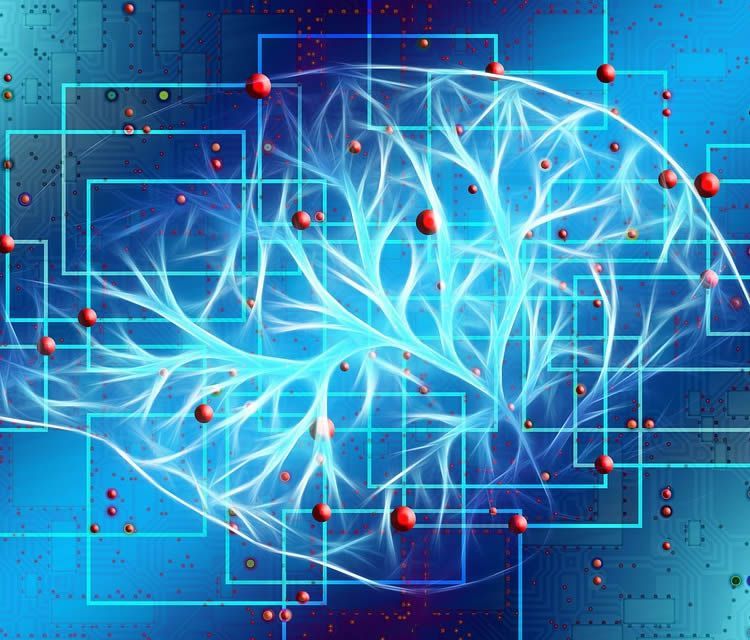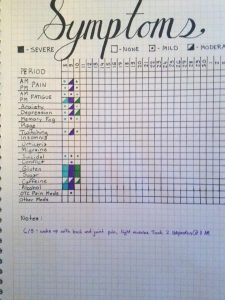
June 2019
www.ninet.med.ubc.ca
PDF version of the newsletter can be found here
Welcome summer! This is our 5th newsletter from the NINET Public Advisory Committee (PAC), comprised of members of the public, clinic patients, lab personnel, and Dr. Fidel Vila-Rodriguez. We meet regularly to discuss improvements at the clinic, on-going research, and to exchange ideas how to improve access to and education about non-invasive neurostimulation therapies for people with mental illness. If you have questions or topics you would like to see in the newsletter, contact us at newsletter.ninetlab@gmail.com or leave a note for the newsletter editors at the NINET office. The PAC is now on hiatus until September 2019. Have a wonderful summer, everyone!
NINET in the News

Vancouver Coastal Health Research Institute recently did a feature article on the NINET Lab, called “A Day in the Lab.” Here are some of the highlights!
The article outlines how the NINET Lab is focused on research about the use of neurostimulation to help treat individuals experiencing different forms of mental health conditions, such as major depressive disorder and bipolar disorder. Current research at NINET studies the use of repetitive transcranial magnetic stimulation (rTMS) to treat depression. The rTMS uses magnetic pulses to stimulate nerve cells in the brain while the patient remains awake. The treatment targets nerve cells in the frontal lobe – the region involved in mood control – to help ease depression symptoms.
Not only does the NINET lab facilitate clinical trials of rTMS, but laboratory staff also operate a free treatment clinic for approximately 20 patients a day. “The nature of our research makes us a truly diverse group,” says Dr. Fidel Vila-Rodriguez, director of the NINET Lab. “We have people with backgrounds in basic science, psychology, neuropsychology, psychiatry, electrical engineering, physics, and computer science.”
Vila-Rodriguez says everyone in the NINET lab is incredibly committed to providing the best patient care. “We deeply care about the mental health struggles people face and we firmly believe our research may lead to improving their care. It’s a very powerful driving force for us all,” says Dr. Fidel Vila-Rodriguez.
You can read the full story on NINET by the VCHRI on their website. From those of us on the patient side of the NINET PAC, we say congratulations and thank you to everyone working at NINET!
New Faces in the Clinic
We welcome Kathryn and Hallee, our new rTMS technicians who joined NINET in May 2019. Welcome too, to Milena our new clinical trainee who will join individual assessments, group medical visits, orientations, and motor threshold sessions throughout treatment. Last but not least, Aydan, our medical administration assistant, is joining us in June! Welcome, all!
Focus on Current Research
This month, we highlight the ASCERTAIN-TRD study, which is also known as the “augmentation or switch” study in the NINET lab. The purpose of this study is to compare the effectiveness of three different treatment options for those dealing with treatment-resistant depression. The three different treatment options are: 1) adding aripiprazole (Abilify TM) to current treatment, 2) adding repetitive transcranial magnetic stimulation (rTMS) to treatment, and 3) switching treatment to venlafaxine (Effexor TM).
The NINET Lab is one of the 20 study locations in Canada, USA, and Italy participating in the ASCERTAIN-TRD trial. To learn more about this study, including eligibility for enrollment, please visit ninet.med.ubc.ca/research/
Ask an Expert: Is it Relapse?
Our research expert, Dr. Fidel Vila-Rodriguez, shares about the difference between having a few bad days in a row and having major depression reoccur or relapse.
Depression can come back weeks, months, or even years after the first episode. Unfortunately, depression may return in over 50 percent of people diagnosed with major depression. Researchers, including those at the NINET Lab are still
figuring out why some people relapse, but others do not.
People who have had an episode of major depression are often very concerned if their mood starts to slip again. There is a difference between having a hard time or a few bad days, however, and depression relapse. Generally, if you notice your mood is low for two consecutive weeks, it is time to check in with your mental health team.
Some of the signs of depression relapse include:
- Social withdrawal: Avoiding social situations, losing touch with friends.
- Fatigue: Daily tasks may feel more difficult and take longer, such as washing up and dressing in the morning.
- Changes in sleep patterns, either insomnia or excessive sleeping during the day.
- Changes in appetite whether they are a loss of appetite or an increased appetite.
- Increased irritability where you get annoyed or frustrated more easily than usual.
- Loss of interest in things you usually enjoy, like taking less pleasure from hobbies or a reduced interest in sex.
- Concentration and memory problems: with depression, your thoughts and speech may feel slower or sluggish.
- You may also have non-specific physical aches and pains, like unexplained headaches, stomach aches, or muscle pain.

It can be useful to make a note of your symptoms on a calendar. Normal lows can feel like depression but they may pass with time and some extra self-care. If after two weeks, you are still feeling low and you’ve noticed some of the signs of depression relapse set out in this article, it may be time to seek some help.
Certain stressful life events can also trigger a new depressive episode. These can include family conflict, relationship changes, and grief. You may need some extra support to get through these challenges without slipping into major depression.
Depression may also reoccur if you had an incomplete recovery from the last episode of depression. If the main symptoms are not fully treated, depression is more likely to return. Equally, people who stop depression treatment (rTMS
or antidepressants or both) too early are more likely to experience symptoms again. Depression takes time to heal so sticking with treatment for six or more months after feeling better can reduce the risk of future depression.
Finally, medical conditions like diabetes, obesity, and heart disease, can lead to higher rates of future depression so it is important to try to look after your physical health as best you can to safeguard your mental health! The tried and true remedies of healthy food, proper rest, moderate exercise and reducing stress all support good mental health too.
Research supports mindfulness based cognitive therapy as a depression relapse prevention tool. One study shows that practicing mindfulness three times a week may reduce depression relapse by up to 50 percent within a year (Crane, 2014). You can read the Ask an Expert column on mindfulness in our February newsletter.
Questions? You can ask them at a Group Medical Visit!
Pets Help Mental Health
Can pets impact our physiological and mental and health? Probably!
In 1984, an American biologist named Edward Wilson coined the term “biophilia” as humanity’s innate tendency to focus on life and biological processes. Wilson hypothesized that “human dependence on nature extends far beyond the simple issues of material and physical sustenance to encompass as well the human craving for aesthetic, intellectual, cognitive, and even spiritual meaning and satisfaction,” (Kellert & Wilson, 1995). In other words, people have an innate desire to connect with other forms of life.
This is certainly true when it comes to the relationship between humans and their pets. Over the past few decades, numerous studies have found beneficial effects of pets on people’s physical and mental health (Charnetski & Riggers, 2004; Serpell, 1991). For example, the presence of a pet has been associated with reduced blood pressure and stress levels (Allen, Blascovich, & Mendes, 2002).

– Riley
One study found that petting a dog for a mere 20 minutes resulted in an increase in immunoglobin A levels, a protein that acts as the first line of defence against
a number of diseases (Charnetski, Riggers, & Brennan, 2004).
In another study, new pet owners of either a cat or dog were tested for any changes in behaviour and health over a 10-month period. The researchers found that many of the pet owners reported a significant reduction in minor health problems as well as an increase in physical exercise from those who walked their dogs compared to people who did not acquire a pet (Serpell, 1991).
Pets have also been found to positively impact those living with mental health issues. For instance, one study found that animal-assisted therapy was associated with reduced anxiety levels for hospitalized psychiatric patients with a variety of
psychotic and mood disorders (Barker & Dawson, 1998).

– Tango
Another study assessed the effects of adopting a new pet in patients with treatment-resistant major depressive disorder. Over a three-month period, researchers evaluated participants every 4 weeks using the Hamilton Rating Scale
for Depression (HAMD17) and Global Assessment of Functioning (GAF). At the end of the study, their results showed that the pet group had improvements in HAMD17 and GAF scores as well as higher remission rates compared to the no-pet group.
As you can see, pets greatly affect our mental and physiological health. Even
interactions of less than 30 minutes are enough to positively impact our immune systems, while longer interactions are linked with alleviating minor health problems and mental health issues.
So, the next time you see a pet, give it a mental high five, for they’re helping people more than they could ever know.
If you can’t have a pet of your own, there are options for volunteering! Check out your local SPCA or animal rescue organization like the Vancouver Orphan Kitten Rescue Association (VOKRA) for volunteer opportunities.
– Liana Weinberg
rTMS and Side Effects
The NINET Lab has done a small study on side effects and rTMS in patients. The study revealed that pain on stimulation site, headache, and fatigue are the three most common side effects of rTMS, with pain/discomfort being the most frequent
one, where all patients reported to have experienced it at least once over the course of the treatment. Interestingly, the side effect scores for pain, headache, and fatigue show a significant decrease over time! Generally, it gets better.
People who experience greater side effects like pain, headache and fatigue do not have a better or worse chance of responding to rTMS. The research showed stimulation intensity, age, and responsiveness to treatment did not affect patients’ ratings on side effects.
You can find the poster on this research on the NINET website here.